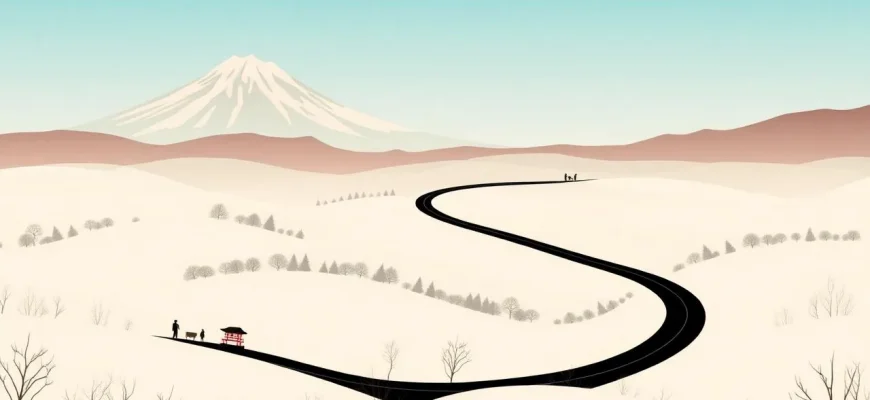Japanese cinema has a profound tradition of telling stories that reflect the nation's history, culture, and the lives of its notable figures. This curated selection of biopics offers a window into Japan's past, showcasing the lives of influential individuals from various walks of life. Whether you're a history buff, a film enthusiast, or simply curious about Japan's cultural heritage, these films provide not only entertainment but also a deeper understanding of the country's legacy.

The Hidden Fortress (1958)
Description: Though not a traditional biopic, this film by Akira Kurosawa inspired George Lucas's "Star Wars" and follows two peasants who inadvertently become involved in a princess's escape, reflecting the tumultuous Sengoku period.
Fact: The film's narrative structure influenced the "Star Wars" saga, particularly in the use of the "hidden fortress" plot device.
 Watch Now
Watch Now 
The Last Samurai (2003)
Description: This epic film captures the life of a fictional American officer who becomes involved in the Satsuma Rebellion, providing a Western perspective on the samurai's final stand against modernization.
Fact: Tom Cruise underwent extensive training in samurai swordsmanship for his role. The film was shot on location in Japan, including at the Himeji Castle.
 Watch Now
Watch Now 
Memoirs of a Geisha (2005)
Description: Based on the novel by Arthur Golden, this film delves into the life of a geisha in pre-World War II Japan, offering a glimpse into the secretive world of geisha culture.
Fact: The film was shot in both English and Japanese, with the Japanese dialogue being dubbed by the actors themselves. The production faced criticism for casting Chinese actresses in Japanese roles.
 Watch Now
Watch Now 
Hara-Kiri: Death of a Samurai (2011)
Description: This remake of Masaki Kobayashi's classic tells the story of a ronin seeking to commit seppuku, revealing the harsh realities of samurai life and the decline of their honor code.
Fact: The film was shot in 3D, a rare choice for a Japanese historical drama, enhancing the visual storytelling.
 Watch Now
Watch Now 
The Yellow Handkerchief (1977)
Description: This film follows a man released from prison who seeks to reconnect with his estranged wife, reflecting on themes of redemption and forgiveness in post-war Japan.
Fact: The film was remade in English in 2008, starring William Hurt.
 30 Days Free
30 Days Free 
The Sea and Poison (1986)
Description: Based on true events, this film examines the moral dilemmas faced by doctors during World War II, particularly in relation to vivisection experiments on prisoners.
Fact: The film was adapted from a novel by Shusaku Endo, known for his exploration of moral and ethical issues.
 30 Days Free
30 Days Free 
The Twilight Samurai (2002)
Description: A poignant tale of a low-ranking samurai in the late Edo period, struggling with poverty and duty, offering a more grounded view of samurai life.
Fact: The film won the Japanese Academy Award for Best Picture and was nominated for an Academy Award for Best Foreign Language Film.
 30 Days Free
30 Days Free 
The Emperor in August (2015)
Description: This film portrays the critical days leading up to Japan's surrender in World War II, focusing on Emperor Hirohito's decision-making process.
Fact: The film was released to coincide with the 70th anniversary of the end of World War II.
 30 Days Free
30 Days Free 
The Ballad of Narayama (1983)
Description: Set in a remote village, this film explores the tradition of "obasute," where the elderly are left to die, reflecting on the harshness of life and the cycle of nature.
Fact: The film won the Palme d'Or at the Cannes Film Festival, making director Shohei Imamura the first Japanese director to win this award twice.
 30 Days Free
30 Days Free 








